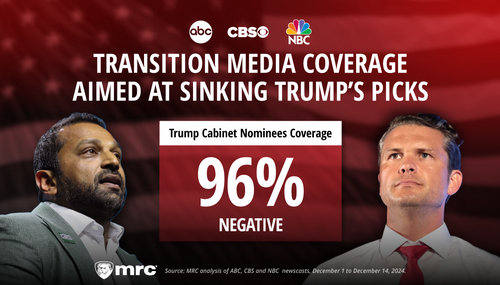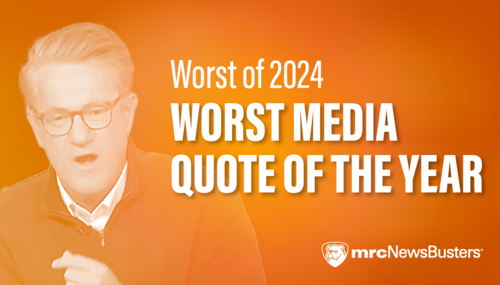 A light satirical article that serves to flatter its Holocaust-denying subject was posted at The New Yorker and in the October 29 print edition, under the headline “Mahmoud from Tehran,” by Zach Helfand, who writes about sports for the magazine.
A light satirical article that serves to flatter its Holocaust-denying subject was posted at The New Yorker and in the October 29 print edition, under the headline “Mahmoud from Tehran,” by Zach Helfand, who writes about sports for the magazine.
“Mahmoud” would be Mahmoud Ahmadinejad, former president of Iran, murderous tyrant and Holocaust denier who has picked up a weird hobby of tweeting about American sports. But Helfand was notably light on the Iranian dictator, barely mentioning his offenses against decency:
Mahmoud Ahmadinejad, Iran’s President from 2005 to 2013, oversaw a ban on social media in his country, but last year, perhaps following the example of America’s President, he started tweeting on a new account.
On Twitter, the populist hard-liner goes by the handle @Ahmadinejad1956 (a reference to his birth year), and identifies himself as a “Husband, Dad, Grandfather, University Professor, President, Mayor, Proud Iranian.” For the most part, his tweets veer between New Agey aphorisms (“Let’s all love each other”) and political commentary (“the Zionists are always causing problems for the #AmericanPeople . . . #ZionistPlot”).
But Ahmadinejad has engaged in far worse than even the offensive anti-Zionism that The New Yorker dismisses as “political commentary.” While serving as Iran’s president, he frequently referred to the Holocaust as a myth. That didn’t make it into Helfand’s frothy writeup:
Last month, however, Ahmadinejad decided to address one of Donald Trump’s favorite topics: the controversy surrounding the former 49ers quarterback Colin Kaepernick. He tweeted, “The #NFL season will start this week, unfortunately once again @Kaepernick7 is not on a NFL roster. Even though he is one of the best Quarterbacks in the league.”
It was not the first time Ahmadinejad had used sports to exploit America’s social divisions. This summer, he waded into the debate over Serena Williams’s skintight outfit at the French Open, defending Williams, and argued that Trump was wrong to say that he preferred Michael Jordan to LeBron James, a frequent critic....
Helfand’s light and cheerful tone came off as offensive.
Could Ahmadinejad be America’s newest purveyor of hot sports takes? For an expert opinion, let’s go to the phones, where we have Mike Francesa, the dean of sports talk at New York’s WFAN. “If he called in to my show, I would have treated him the same way I treat every other caller,” Francesa said, of the Iranian President. A virtual call-in was arranged, using the tweets. Next up, Mahmoud from Tehran. What’s up, Mahmoud?...
Francesa concluded that, while Ahmadinejad seems to have a good grasp of American politics, his sports knowledge is shallow. “It sounds like he doesn’t know what he’s talking about,” Francesa said. But he could understand Ahmadinejad’s difficulty.
The bias by omission looks severely hypocritical, given the magazine’s has with no evidence linked President Trump to the anti-Semitic massacre at the Tree of Life synagogue in Pittsburgh, as documented by New Yorker writer Alexandra Schwartz in “The Tree of Life Shooting and the Return of Anti-Semitism to American Life.”
The violence that took place this Shabbat morning at the Tree of Life congregation in Pittsburgh is the fear of every synagogue, Hillel, day school, and Jewish community center in this country. It is the ancient Jewish expectation of persecution -- when, where, has it not been with us? -- married to American reality: a country saturated with guns and habituated to quotidian massacre, plagued by age-old racism and bigotry, which have lately been expertly inflamed by the holder of the highest office in the land.
But when the “highest office in the land” of Iran was previously occupied by an actual Holocaust denier, it’s not even worth a mention in the magazine?
.... In the run-up to the election, anti-Semites began to put Jewish names in sets of triple parentheses -- a yellow star for the digital age, by which to un-assimilate the assimilated. Jews rushed to claim and defang the symbol, turning it into a voluntary declaration of pride, but the scar of its origins remains. For a time after Donald Trump’s election, I collected screenshots of racist and anti-Semitic hate speech I came across. Then I stopped. The proof was everywhere, plain as day.
It seems clear that anti-Semitism has burrowed into the American mainstream in a way not seen since the late nineteen-thirties and early nineteen-forties, when it also fused easily with conservative isolationist fervor and racism....
Again, it’s jarring to read baseless accusations of anti-Semitism against Trump on the same page as a “humor” item on a Holocaust denier, suggesting that the magazine’s concern over anti-Semitism has a political component.




